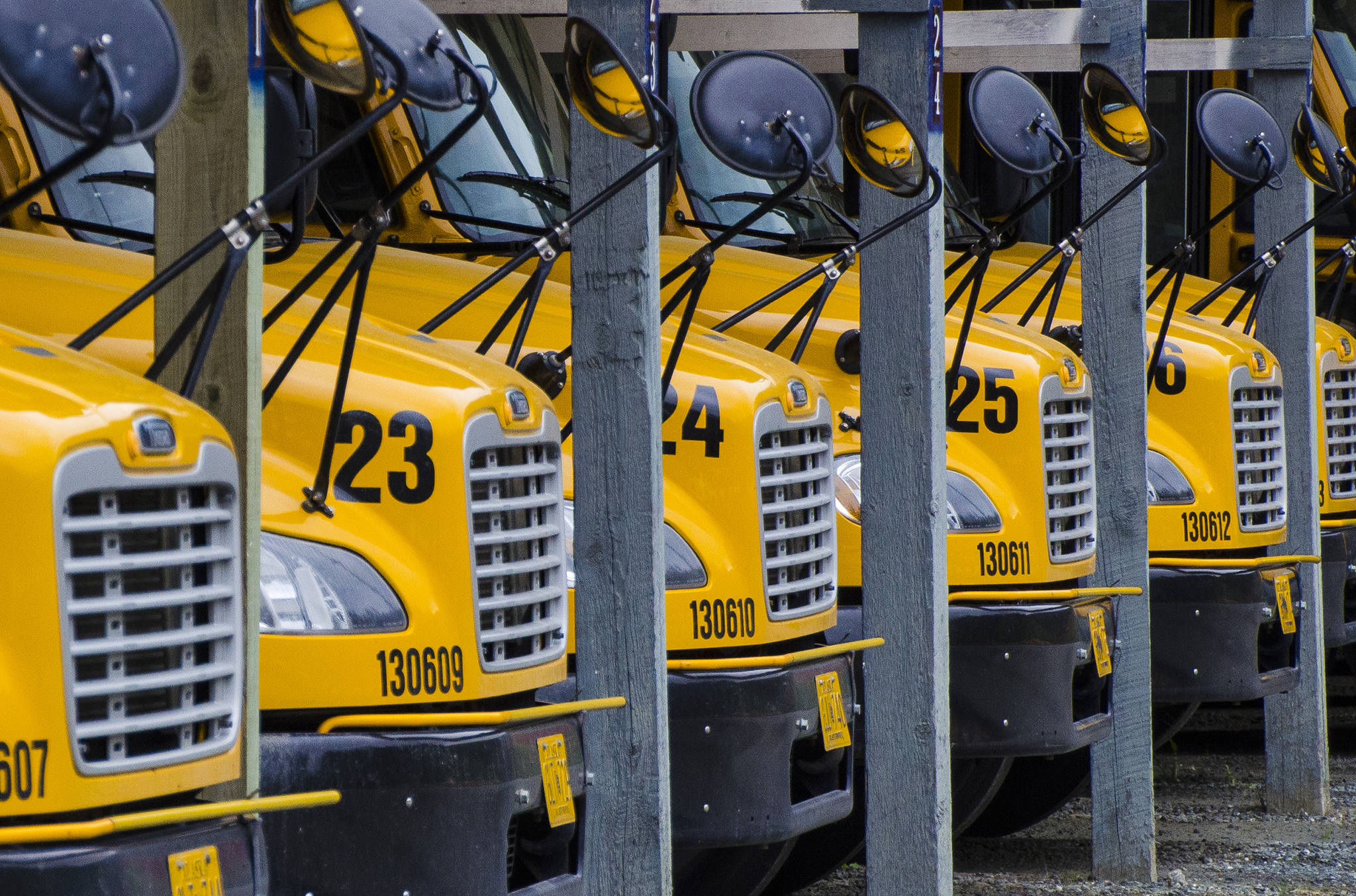In 1999, high school student Rachel Scott wrote about her theory that one person could create a chain reaction of compassion. She stood up for a bullied student and sat down to lunch with the lonely new kid. After she died in a school shooting her work grew into a foundation called Rachel’s Challenge, which today helps schools become “safer, more connected places to live and learn.”
A number of products have evolved from America’s school violence epidemic. One, a computer monitoring system named “Bark,” was met with some backlash when rolled out in Juneau. Students and families had concerns about privacy and safety of student information.
[Students and parents raise concern about monitoring software]
Bark watches all emails, chats, web searches and files a student writes with their juneaustudents.org account, from any device, be it at school or home.
The sales pitch is hard to argue with. Data shows most incidents of school violence are preceded by social cues—both online and in person. Even though the students Bark was designed for know how to keep secrets (and have personal cellphones), if it helps prevent just one actual incident, the cost would seem worth it.
And yet, Bark only counts keywords. It can’t interpret meaning.
As we measure the trade-off between privacy and safety, we must ask ourselves how surveillance like Bark affects the young brains for whom building healthy academic relationships is critical.
In Juneau, a middle-schooler researching the rates of violence against women in Alaska triggered a check-in from her principal. A student’s poem about how she hates violence did the same. When I asked another how this might change the way she does her schoolwork, she shrugged and said, “I don’t know. I probably just won’t use those words.”
Around the country, and now in Juneau, students being monitored by tools like Bark are second-guessing everything they type. Thinking before hitting the enter key may be an important skill in the real world, but in school, students should feel safe enough to explore and experiment; to be creative and boundless.
When it finds enough keywords, Bark emails an adult. If the concern is valid it results in a conversation. Sometimes a student wants that conversation with a trusted adult. Mostly they want a connection with their peers.
There’s a common thread in most incidents of school violence and self-harm: connection.
And so, to every parent wanting to opt your child out of Bark: I hope you are encouraging them to be one of those that recognizes the lonely kid in class. I hope your child makes the effort to connect, and recognize that inside we’re all the same—confused, hungry, hyper, happy, sad. I hope they stand up for the bullied, invite the uninvited, and choose where to sit at lunch not for their own stature, but for someone else’s. I wish these things for your child, because I wish them for mine. I know how hard it is for her, in the face of her friends, to go against the grain.
And to our school leaders and teachers: I hope we have more planned than Bark. We can’t forget how difficult it is for kids to go against the grain, and we need to make it easier for them. Programs like Rachel’s Challenge can help pave the way for students to build healthier school communities.
And to students who might hesitate to type that poem for fear some adult might judge it based on a list of keywords: Don’t stop. Do your thing. Be creative. Be boundless.
And lastly, to all the adults in our schools, working every day to keep our kids safe, healthy, and educated: thank you, thank you, thank you.
• Ryan Stanley lives in Juneau. He is a parent, past board member of Juneau Community Charter School and Alaska Society for Technolgy in Education and the Technology Director for Southeast Regional Resource Center, where he manages TechOps, an IT department for many rural Alaskan school districts.
Columns, My Turns and Letters to the Editor represent the view of the author, not the view of the Juneau Empire.

